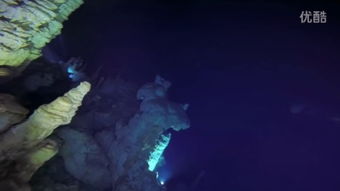Content:
In the vast and mysterious world beneath the water's surface, fishing is an activity that requires patience, skill, and a deep understanding of the underwater environment. Whether you're an experienced angler or a beginner looking to explore the depths, mastering the art of underwater fishing can be a rewarding and exhilarating experience. Here are some essential techniques and tips to help you catch fish in the underwater realm.

Understanding the Underwater Environment
Before diving into the water, it's crucial to have a basic understanding of the underwater environment. Fish are most active during dawn and dusk, as these times offer them the least amount of light and the greatest chance to hunt for food. Knowing the types of fish you're targeting and their preferred habitats will also help you choose the right spot to cast your line.
Choosing the Right Equipment
The right equipment is essential for successful underwater fishing. Here are some key items to consider:
- Scuba Diving Gear: For deeper dives, you'll need a full set of scuba diving gear, including a mask, snorkel, fins, wetsuit, and a tank filled with compressed air.
- Fishing Rod and Line: A specialized underwater fishing rod and line are necessary. These rods are usually lighter and more flexible to handle the resistance of water.
- Hooks and Lures: Choose hooks and lures that mimic the natural prey of the fish you're targeting. For example, if you're fishing for bass, use lures that resemble small fish or insects.
- Buoyancy Control Device (BCD): A BCD helps you maintain the desired depth and control your ascent and descent while underwater.
Selecting the Right Location
Once you have your gear, the next step is to find the perfect spot to fish. Look for areas with strong currents, rock formations, or vegetation, as these provide excellent cover and feeding opportunities for fish. Some popular underwater fishing locations include:
- Reefs: Reefs are rich in marine life and offer plenty of hiding spots for fish.
- Wrecks: Sunken ships or other wrecks provide a habitat for fish and are often teeming with life.
- Riverbeds: Riverbeds with rocky or sandy bottoms can be great places to find fish.
Techniques for Casting and Baiting
When it comes to casting and baiting, here are some tips to help you catch more fish:
- Casting: Practice your casting technique above the water before diving in. This will help you become more comfortable with the motion and reduce the risk of losing your line underwater.
- Baiting: Attach your lure or bait to the hook using a secure knot. Make sure it's properly weighted to sink to the desired depth.
- Patience: Fish are often slow to bite, so be patient and wait for the right moment to strike. If you feel a pull on your line, don't pull back too hard; instead, allow the fish to take the bait and then gently reel it in.
Reading the Water
Being able to read the water is a crucial skill for underwater fishing. Look for signs of fish activity, such as bubbles, ripples, or shadows. Pay attention to the currents and how they flow around rocks or other obstacles, as these can indicate the presence of fish.
Handling and Releasing Fish
Once you've caught a fish, it's important to handle it carefully to ensure its survival. Here are some tips:
- Use a Net: When you catch a fish, use a net to help you bring it to the surface. This minimizes the stress on the fish and prevents it from escaping.
- Release Promptly: If you're not planning to keep the fish, release it as quickly as possible. This allows the fish to recover and return to the water.
- Respect the Environment: Always respect the underwater environment and the creatures that inhabit it. Avoid touching coral or other marine life, as it can be harmful to these delicate ecosystems.
Conclusion
Fishing underwater is an art that requires time, practice, and a deep respect for the underwater world. By understanding the environment, choosing the right equipment, and mastering the techniques of casting and baiting, you'll be well on your way to becoming a skilled underwater angler. Remember to always prioritize the safety and well-being of the fish and the environment, and you'll enjoy a rewarding and sustainable fishing experience.












